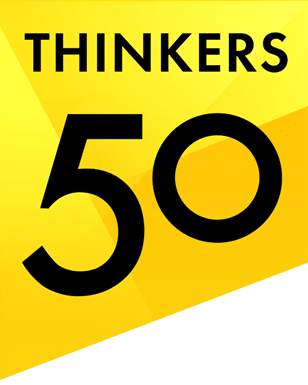Some of these books are new for 2017. Others, published before 2017, may be even more important now than they were when first published... at least for me. You'll see a clear focus on the future of work, as well as some heavy hitting general management books. Some link to my earlier reviews, others I'll just share what I was looking for and what I found. If these sound good to you, here is a set from prior years.
I'm trying something new and will be posting one a day. How long will this take? Depends on how fast I read! I started the list early in the summer, but still have a few in the hopper. Here is the full list if you can't wait. Disclaimers: Where I have received a free copy, I have also purchased at least one more. I am using affiliate links.
Only Humans Need Apply: Winners and Losers in the Age of Smart Machines By Thomas H. Davenport, Julia Kirby 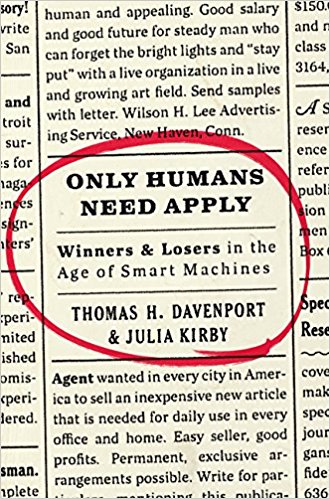
I'm working on a new project focused on human-centric integration of artificial intelligence into work. You'll see many related books in this list. I started my reading here given Tom Davenport and Julia Kirby are key in the world of technology and work. They do a nice job outlining how AI might affect your work, and then given your situation, some personal strategies for action. (My focus is more proactive, how you might craft the work you do given new possibilities.)
What To Do When Machines Do Everything: How to Get Ahead in a World of AI, Algorithms, Bots, and Big Data By Malcolm Frank, Paul Roehrig, Ben Pring 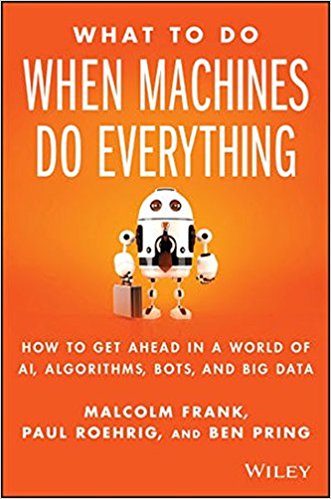
Similar to Davenport & Kirby, this is a great heads-up for what is coming. The authors hail from Cognizant's Center for the Future of Work. Besides a nice job on the footnotes (thank you!) they offer new data from their survey of over 2000 companies. Five approaches from personal to strategic are offered for taking advantage of the changes to come.
Machine, Platform, Crowd: Harnessing Our Digital Future By Andrew McAfee, Erik Brynjolfsson 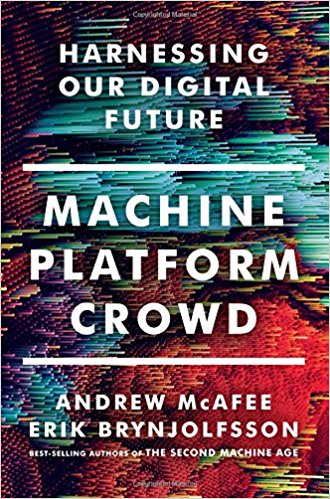
McAfee and Brynjolfsson have done the most to bring the idea of "racing with machines" versus racing against the machine (phrase from their prior books, The Second Machine Age, and Race Against the Machine) to the general public. In Machine, Platform, Crowd, they take a broad view of the roles digital tools play in organizations and work. If you haven't read their other books, you can start here to see their most recent perspectives.
Under New Management: How Leading Organizations Are Upending Business as Usual By David Burkus 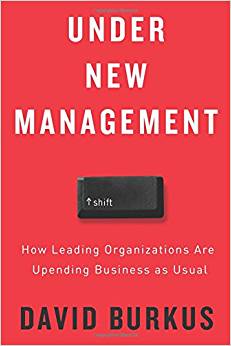
This one is a great primer for the options we have in our futures of work (plural intended: we should be crafting these futures, not focused on any one). From killing email, to pay transparency and reduced hierarchies, this is a book that will appear when I do my "business books: fact or fiction" class (under fact). Students may not want to hear it from a professor, but maybe they'll take heed from Burkus. Many of the techniques in modern organizations are still built for the organizations, technology, and people of the 50s.
Analytics: The Agile Way (Wiley and SAS Business Series) By Phil Simon 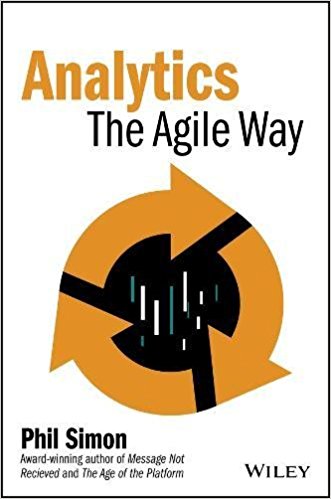
I have to keep up my technical skills, and Phil Simon's work is a huge help. When contacted about teaching a short course on the managerial aspects of business analytics, I suggested they contact Phil instead. They still thought my background would be a better fit given my "plugged-in" approach, but were happy to hear I'd use this book in the class. Didn't work out that time, but now I'm prepared!
Blockchain Revolution: How the Technology Behind Bitcoin Is Changing Money, Business, and the World By Don Tapscott, Alex Tapscott 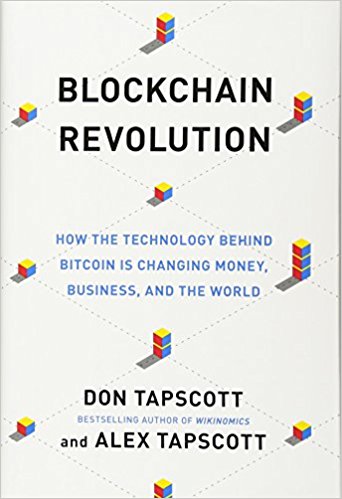
This is another book I was reading to be sure I stay a step a head of at least some of my students. If you know that blockchain is something related to cryptocurrencies like bitcoin, but that's about it, this is the book for you. Reading it isn't like sitting down with a novel, but you will get a much better perspective of how blockchain technologies will enable new industries and vast improvements to the ones we have. My favorite is only mentioned in passing -- educational transcripts -- but you'll likely see something that affects the work you do today.
Information Rules: A Strategic Guide to the Network Economy By Carl Shapiro, Hal R. Varian 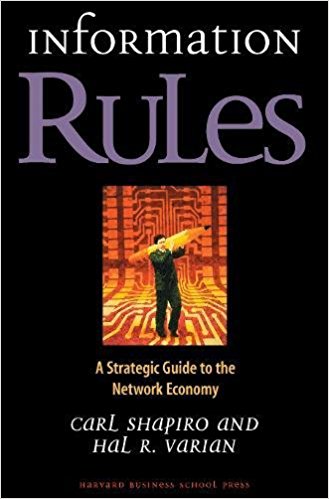
Shapiro and Varian are hardcore economists, but with important translation skills. Both started as academics, but Varian is now Chief Economist at Google. Margo Beth Fleming, then an editor at Stanford University Press, recommended Information Rules to me as the style of book I might try to write. Approachable book about complex issues.
The Power of Onlyness: Make Your Wild Ideas Mighty Enough to Dent the World By Nilofer Merchant 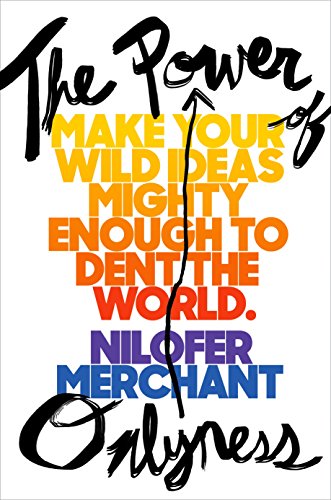
Here the list takes a turn away from digital organization and the future of work -- except that our digital world enables all of us to take a much taller stand and have vast impact if we want. Merchant notes, “You’re standing in the spot in the world that only you stand in, a function of your history and experiences, visions, and hopes. From this spot where only you stand, you offer a distinct point of view, novel insights, and even groundbreaking ideas.” Full review here from a prior post.
The Asshole Survival Guide: How to Deal with People Who Treat You Like Dirt By Robert I. Sutton 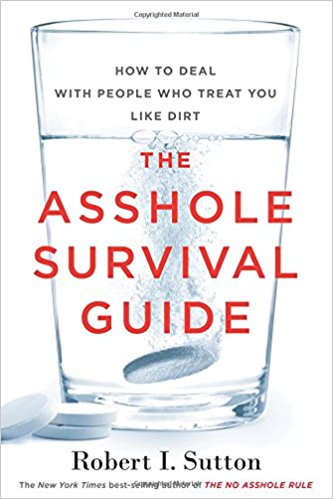
Bob Sutton is a Stanford professor and one of the first colleagues I point to as both able to take on tough academic topics and real world issues. This is an actionable follow-on to Bob's books, The No Asshole Rule, and Good Boss, Bad Boss. He mentions 8000 emails readers have sent his way. That makes me sad, but I guess I'm not surprised. Perhaps with this book, Nilofer Merchant's earlier, and the next two on my list, Leadership Learning, and The Advantage, we can all start enacting the changes to reduce Bob's in-box. Like his prior work, the background research is there, but presented in a way that brings you into the community.
Learning Leadership: The Five Fundamentals of Becoming an Exemplary Leader By James M. Kouzes, Barry Z. Posner 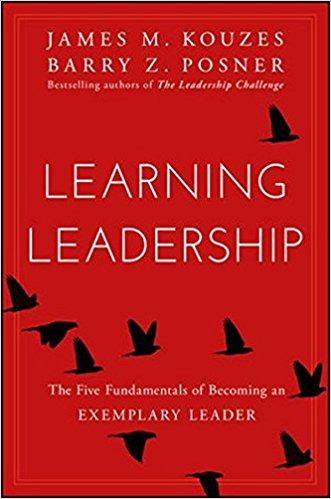
This is a recent contribution presenting Kouzes and Posner's deep expertise and data on leadership (over the years they've surveyed more than 2 million people from around the world) . Building from the foundations presented in The Leadership Challenge, Learning Leadership takes on damaging myths that may be holding you back. Many of these are tough to read as they take away excuses you may have lurking in the back of your mind (speaking from personal experience). As you're seeing in this list, I like actionable books. This one gives you chances to pause for preparation, then guides you through next steps to take action. My favorite nugget: "Great leaders are great learners." Excellent advice now, and for our futures of work.
The Advantage: Why Organizational Health Trumps Everything Else In Business By Patrick M. Lencioni 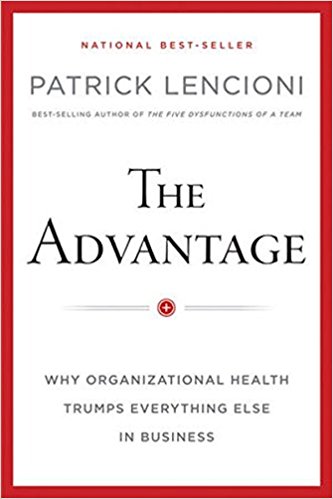
This is the book that is motivating me to build the course, Business Books: Fact or Fiction. Presented with deep examples from industry, I can then tie back to deep examples in research. Given the examples I see in Bob Sutton's books (e.g., The Asshole Survival Guide) and in the news, I don't think traditional organizational behavior and design courses are having the outcomes my colleagues and I hope for. The Advantage, built on Pat and his colleagues' deep experience in management and consulting, puts organizational health at the center of organizational design. It isn't enough to be organizationally smart (great strategy, technology, etc.), you also need to the organization to be healthy. I can teach an entire course by focusing on his key health issues of clarity, communication, reinforcement, and cohesion. Link to prior review.
Own It: The Power of Women at Work By Sallie Krawcheck
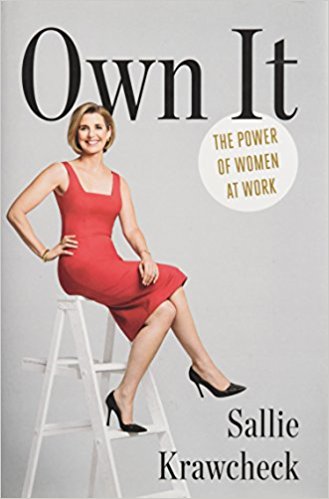 I read Own It after hearing Sallie Krawcheck interviewed on NPR. Besides describing her tumultuous career on Wall Street, she shares her reasons for starting her firm Ellevest, an investment platformed focused on women's needs. Women live longer, make less, and tend to be less risky (for good and for bad reasons). Yes, the book feels like marketing for Ellevest, but by the end I'd decided that was ok.
I read Own It after hearing Sallie Krawcheck interviewed on NPR. Besides describing her tumultuous career on Wall Street, she shares her reasons for starting her firm Ellevest, an investment platformed focused on women's needs. Women live longer, make less, and tend to be less risky (for good and for bad reasons). Yes, the book feels like marketing for Ellevest, but by the end I'd decided that was ok.
The Golden Passport: Harvard Business School, the Limits of Capitalism, and the Moral Failure of the MBA Elite By Duff McDonald 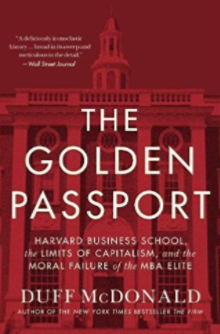
Very interesting history and analysis. Given the early foundations of my field of organizational behavior were built at Harvard (Taylor, Mayo, Raiffa, Chandler, and more), it's a bit like People magazine for academics. For MBAs, it's a bit of a cautionary tale or a window into the sausage making of a business school. Especially interesting given the likely shifts we will see in the future of graduate business education. What can we learn from more than 100 years of history?
Rigor Mortis: How Sloppy Science Creates Worthless Cures, Crushes Hope, and Wastes Billions By Richard Harris 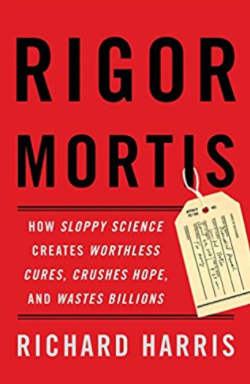
Just starting Rigor Mortis. Timely for me as my colleagues and I are looking at a new National Science Foundation proposal. This is another where an NPR interview triggered my interest. Harkens back to my time as a doctoral student involved in a secondary analysis of a medical study. Our results could be replicated. The opposing author's could not. Our results show up in another interesting book, Impure Science (1992, Robert Bell).
Change Agent: A Novel By Daniel Suarez 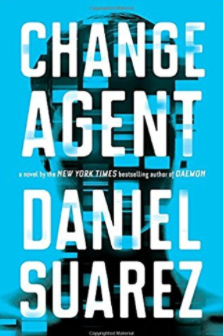
All work and no play.... Change Agent is fabulous hard science fiction. I heard about this one from the podcast, Triangulation. Suarez does his homework before starting in on a book and this one is set in a world with genetic editing available for hire. The big picture questions will have you ready for your next cocktail party, or will motivate you to take an online class about biohacking.
2017 Thinkers 50 Distinguished Achievement Awards Shortlist
I'll end my Fall Reading list with another list. The 2017 Thinkers50 includes authors already on my short list (e.g., Nilofer Merchant's, The Power of Onlyness, and Tapscott and Tapscott's, Blockchain Revolution), but there are many others I'll be taking a look at. I'm honored to be attending this year's Gala (as a guest) and expect the recommendations I hear there will go far beyond the books on my or their current list. Time to start on my 2018 reading....

